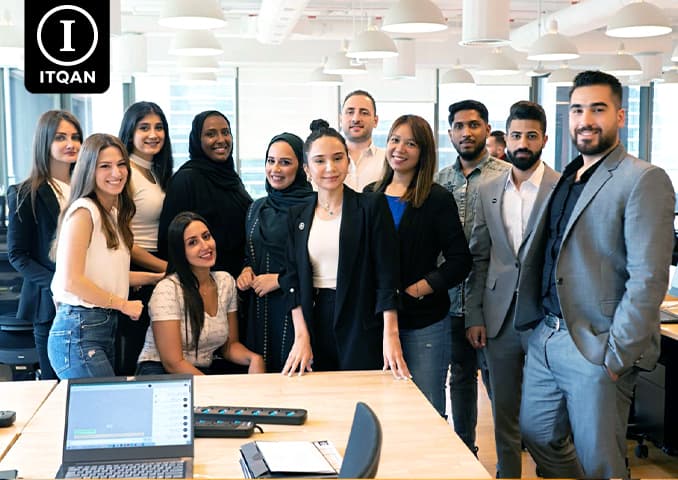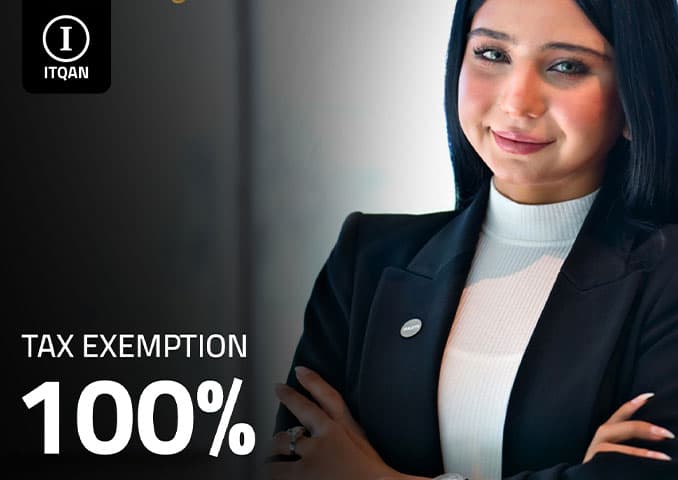If you are thinking about establishing a company in the Emirate of Dubai , free zones are an ideal choice for many entrepreneurs and investors. Dubai’s free zones provide an encouraging and flexible environment for new and expanding businesses, making them an ideal destination to establish and grow.
Dubai’s free zones are characterized by a set of features and facilities that attract companies and investors, such as exemption from customs duties, tax facilities, easy access to local and international markets, in addition to advanced infrastructure and distinguished government support.
When considering establishing a company in the Dubai Free Zone, you must consider several aspects, such as the type of business license required and the conditions necessary to obtain it, as well as other legal and administrative requirements that must be adhered to.
It is worth noting that these regions offer diverse opportunities for companies in various sectors such as manufacturing, services, technology, and trade, allowing you to achieve your business goals efficiently and successfully.
Whether you are a local or international investor, Dubai’s free zones provide you with the right environment to succeed and grow your business sustainably and profitably. Learn more about the requirements for establishing a company in the Dubai Free Zone and get ready to start a successful journey in the thriving business world in the Emirates.

جدول المحتوى
ToggleEstablishing a company in the free zone in Dubai
Establishing a company in the Dubai Free Zone represents a strategic and important step for many entrepreneurs and startups. Dubai’s free zones provide an ideal environment for business thanks to their facilitating legislation and the economic benefits they offer. This option is an attractive option for investors who want to access an international market and expand their business. Entrepreneurs who choose to establish their companies in the free zone enjoy many advantages, including tax exemptions and simple procedures for establishing and operating. These areas also provide advanced infrastructure and integrated logistical services that effectively support the growth of companies. The Dubai Free Zone also offers companies opportunities to better access the MENA market, facilitating the expansion of their business and increasing opportunities for growth and profitability. In short, establishing a company in the Dubai Free Zone is a fruitful option that offers great opportunities for growth and international expansion in a conducive and stimulating business environment.
Requirements for establishing a company in the Dubai Free Zone
Establishing a company in a free zone in Dubai requires compliance with several requirements and procedures. Here is some basic information about these requirements:
Company type: The type of company you wish to establish, whether it is a limited liability company (LLC), a limited liability company (FZ-LLC), a sole proprietorship, or a public or private joint-stock company, must be determined according to the needs and desires of the business.
- Company name : A distinctive name must be chosen that is not similar to other existing companies, and it must comply with local regulations.
- Copy of passports : Provide a copy of the ID passports of shareholders and managers.
- Registered Office : A specific address must be provided in the free zone to be the company’s headquarters.
- Company Memorandum of Association : The company’s Articles of Association must be prepared and signed by the shareholders.
- Permit from local authorities : Establishing a company requires obtaining a permit from the local authorities in the free zone.
- Capital : The required capital must be provided according to the type of company to be established.
- Legal proceedings : This may include other legal proceedings in accordance with local laws and regulations.
This is just general information, requirements and procedures may vary based on the type of company and the specific free zone in Dubai. Therefore, it is advisable to contact the Corporate Services Center in the relevant free zone and Itqan Company’s specialized consultants to obtain accurate and comprehensive information related to establishing the company in Dubai.
The different types of companies that can be established in the free zone
Here is a table reviewing the different types of companies that can be established in the Dubai Free Zone:
| Type of Company | a description |
| Limited Liability Company (LLC) | A company consisting of partners who share responsibility in specific proportions. Its establishment requires the participation of a national partner of no less than 51%. |
| Limited Liability Company (LLC) | It is similar to a limited liability company but allows it to be established without the participation of a citizen. Mostly used for small and medium businesses. |
| Public Joint Stock Company (PJSC) | It is considered a public company in which members of the public can purchase shares, participate in its management, and contribute to decision-making. |
| Private Joint Stock Company (PSC) | It is similar to a public corporation but is owned by a private company or entity rather than by the public. |
| Sole proprietorship | It is managed by one person and this person bears full responsibility for the company. |
| Subsidiary | It is a branch of a parent company and is subject to local laws and legislation in Dubai. |
These are some of the main types of companies that can be established in the Dubai Free Zone, and other types are also available that vary depending on the needs and circumstances of each company.
Documents required to establish a company in free zones
Establishing a company in the Dubai Free Zone represents an important strategic step for investors and entrepreneurs seeking to exploit economic opportunities in this dynamic business environment. But before investors begin this process, there are a set of required documents that must be submitted to the local authorities to complete the incorporation process. Here is a list of basic documents you may need to establish a company in the Dubai Free Zone:
- Incorporation application form: Also known as the “company registration form,” it contains basic information about the company such as its name, type, organizational structure, and headquarters.
- A copy of the shareholders’ personal ID: A copy of a valid passport or ID card must be provided for each of the company’s shareholders.
- Partnership Agreement Document (if the company is a partnership): If the company is a partnership, there will be a partnership agreement that sets out the rights and obligations of each partner.
- Lease contract or certificate of ownership for the office: The office in which the company will operate needs a valid lease contract or certificate of ownership.
- Free zone permit: A permit must be obtained from the free zone to which the company belongs.
- Professional Certifications (if required): Some of the Company’s professional activities may require certain professional certifications.
- Financial Documentation (if required): You may be asked to provide certain financial documents such as a bank statement or financial report to support your ability to operate the business.
- Form for signing legal documents: It requires the signature of all shareholders or founding partners on the legal documents.

Costs of establishing companies in free zones
The costs of establishing companies in free zones in Dubai vary based on several factors, including the type of company and its commercial activity, the amount of capital required, and the additional services the client needs. Here are some elements to consider when calculating the costs of setting up companies in free zones in Dubai:
- Registration and licensing fees: These include fees that must be paid to the relevant authorities in the free zone, such as the Dubai Investment Authority (DED), the Dubai Free Zones and Economic Zones Authority (DAFZA), and others.
- Consulting costs: If you decide to hire a consulting firm to help set up your company, you will face consulting costs for the services provided.
- Legal Services Fees: In some cases, you may need to hire an attorney or law firm to help you handle complex legal procedures.
- Office and workspace costs: If you need an office or workspace in a free zone, you may need to pay a monthly or annual fee to rent office or commercial property.
- Insurance costs: You may need to purchase an insurance policy for the company, and insurance costs vary depending on the type of business activity and the size of the company.
- Tax registration costs: If you plan to register for value added tax (VAT), you may need to pay tax registration and compliance fees.
- Human Resource Costs: If you need to hire employees, you’ll need to budget for payroll and benefits costs.
Advantages of establishing a company in the Dubai Free Zone
Establishing a company in the Dubai Free Zone provides many advantages and benefits to investors and businessmen. Here are some of these advantages:
- Foreign Investment : Dubai’s free zones encourage foreign direct investment, which attracts investors from around the world to establish companies and expand businesses.
- Tax exemptions : Companies in Dubai’s free zones enjoy exemption from income taxes for a specific period, which helps increase profits and enhance competitiveness.
- Advanced infrastructure : Dubai’s free zones have advanced infrastructure and integrated services that include transportation, communications, and energy, which facilitates companies’ operations and enhances productivity.
- Access to global markets : Dubai free zones provide a suitable environment for exporting and importing goods and services to and from global markets, facilitating business expansion and increasing revenues.
- Logistics Facilities : Dubai free zones provide logistical facilities such as fast customs clearance and advanced warehousing facilities, which helps speed up import and export operations.
- Government support : The government in Dubai provides significant support to companies in free zones by providing effective government services, logistical support, and financial facilities.
- Vibrant business environment : Dubai’s free zones are characterized by a dynamic and lively business environment that encourages innovation and growth, making it an ideal place for establishing startups and business development.
In short, establishing a company in the free zones in Dubai provides many opportunities and competitive advantages that help companies succeed and achieve their business goals efficiently and effectively.
It is clear that establishing a company in the Dubai Free Zone requires a deep understanding of the specific requirements and conditions that must be adhered to. This type of company is an ideal choice for many entrepreneurs and startups seeking to take advantage of the competitive advantages and distinct economic environment that Dubai offers as a global business hub.
When investors decide to establish a company in the Dubai Free Zone, they must be fully aware of the regulations and laws that govern this type of business. These requirements include financial and accounting fulfillment, compliance with periodic reports and taxes, provision of necessary documentation for licenses and permits, in addition to compliance with investor and customer protection rules.
Besides adhering to legal requirements, new businesses must work to build a strong and reliable reputation in the market, invest in marketing and brand building, and develop growth and expansion strategies to ensure long-term business sustainability.
In short, establishing a company in the Dubai Free Zone requires adhering to a comprehensive set of legal and regulatory requirements, along with building strong strategies for growth and expansion. Understanding these aspects and taking appropriate actions can lead to sustainable success and a promising future for businesses in this dynamic and evolving economic environment.
The most important frequently asked questions about establishing a company in the free zone
Can foreigners establish a company in the free zone?
Yes, foreigners can establish companies in Dubai’s free zones with an ownership percentage that varies according to local laws and the type of company.
What business licenses are available in the free zone?
There are many commercial licenses available in free zones, including general commercial licences, industrial licences, service licences, retail licences, investment company licences, and others.
What are the legal and administrative requirements for establishing a company in the free zone?
Requirements vary according to the type of company and the specific free zone, but usually include submission of required documentation and compliance with legal and administrative conditions.
Is there a minimum capital required to establish a company in the free zone?
The minimum capital requirement varies according to the type of company and free zone, and there may be some cases where no minimum capital is required.
What taxes are companies subject to in the free zone?
Taxes vary according to the type of economic activity and the free zone, but free zones often offer tax exemptions and financial facilities such as not charging income tax.



